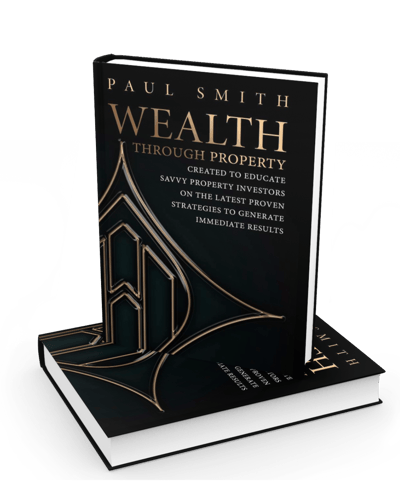The current commercial property market provides a wealth of opportunities for investors.
The UK economy narrowly avoided a recession this year, however commercial property is largely recession-proof with some incentives for investors.
This blog post explains.
What is commercial property?
Commercial property is a type of real estate that is used for business purposes. It includes office buildings, retail stores, industrial complexes and warehouses, as well as any land used to generate a profit. Commercial properties are generally leased rather than owned outright, but ownership and investment in commercial properties can be highly lucrative.
Commercial property typically involves much higher initial investments than residential properties, and so careful research and investment into a commercial property is essential. However, the returns from a commercial property can be significantly higher, as businesses are often willing to pay a higher rate for their space due to the benefits of having an established address that helps promote their business.
Commercial property also offers landlords some advantages over residential properties in terms of rent reliability, the ability to customise for tenants and a clear set of laws and regulations that dictate how the property should be managed. As such, commercial real estate can be an attractive opportunity for investors looking to maximise returns on their investments.
What is a recession?
A recession is an extended period of economic decline. Generally, it is marked by falling output and employment levels as well as rising unemployment rates. During a recession, businesses tend to experience decreased demand for their products or services, which can lead to fewer sales and profits.
This decrease in activity leads to loss of jobs and can lead to a decrease in wages, as businesses struggle to pay their employees. In turn, people tend to spend less money during a recession because they are worried about their future prospects and lack of income. This further decreases demand for goods and services, creating a cycle of economic decline.
Ultimately, recessions result in slower economic growth, lower wages, and higher unemployment.
What is the economic cycle?
The economic cycle, or business cycle, is the regular rhythm of expansion and contraction that occurs in a nation’s economy.
This cycle is typically measured by fluctuations in GDP, employment levels, retail sales, income levels, manufacturing levels and other indicators. The four phases of the business cycle are generally considered to be expansion (or growth), peak, contraction (or recession), and trough (or bottom).
Expansion is the period during which economic activity expands, and employment rates, incomes and other indicators rise. The peak phase is when expansion slows down and begins to decline, while contraction marks a period of significant decline in production and employment levels. Finally, the trough marks the lowest point of the cycle and is followed by a period of economic growth and recovery.
The economic cycle can be affected by both global and domestic factors, such as changes in interest rates, natural disasters, or political events.
Why is the current market is good for commercial property investors?
According to Property Investor Today on the long term potential for commercial property, it says: “Demand for desirable office space in key towns and cities will once again outstrip supply by a significant margin, prices will be driven upwards and those who made strategic investments while costs were comparatively low will reap the rewards.”
Commercial property prices have fallen recently however this provides opportunities for investors to secure a location below market value.
UK commercial property capital values decreased by 13.3% as a whole in 2022.
The market itself had come under pressure following rising interest rates and economic uncertainty. But certain trends point to a more positive outlook.
Many businesses have already bought their workforces back into the office full-time, while others plan to do so as soon as realistically possible. The general long-term outlook for the UK business/commercial property sector is not far removed from the pre-Covid picture.
Low demand for commercial properties is driving prices down, resulting in a buyers market for some savvy investors. Property Investor Today states, “While it may be some time before the UKs economy bounces back to pre-COVID levels, it is guaranteed to happen at some point.
“Demand for desirable office space in key towns and cities will once again outstrip supply by a significant margin, prices will be driven upwards and those who made strategic investments while costs were comparatively low will reap the rewards.”
What commercial property sectors are performing well during the current market conditions?
Medical Assets:
Medical assets perform well in these economic conditions because they provide a reliable income stream. With healthcare services being essential to the population, there is always a need for medical facilities and services. Government programmes also help to support the demand for medical care, helping to ensure that investors receive steady returns from their investments.
Childcare Facilities:
Childcare facilities are a good investment during current market conditions because they provide a steady income stream. With the demand for childcare continuing to be high, investors can be assured of consistent returns on their investments in the form of rental income. The long-term leases associated with these investments also add additional stability and security, helping to ensure that income remains steady even during economic downturns. Additionally, childcare centres are less affected by economic changes than other types of investments and can help to diversify an investor’s portfolio. Like medical assets, childcare centres also tend to have long-term leases with stable tenants, which can provide consistent rental income over an extended period.
Supermarkets:
Investing in supermarket property is a good option during the current economy because it has a predictable income stream. Supermarkets are considered essential businesses, so demand for groceries and other household necessities remains steady even during economic downturns. This provides investors with a secure source of rental income, as supermarkets typically serve as anchor tenants and attract foot traffic that benefits other tenants in the centre. Additionally, supermarkets tend to offer long-term leases which add additional assurance that rental income will remain consistent over time. This secure and reliable income makes investing in supermarket property an attractive option for investors looking for steady returns during uncertain economic times.
Assets in growth projects:
Growth projects are a good option for investors in the current economy because they can offer long-term returns, even if there is short-term volatility. These assets typically have underlying trends that are less impacted by a recession and have strong potential for long-term growth. For example, technology is expected to continue to drive innovation in many industries, while renewable energy projects are becoming more popular as a way to reduce carbon emissions.
Additionally, e-commerce is growing in popularity as customers shift their spending habits to online shopping, creating an increased demand for industrial space for these types of business. By investing in these growth projects, investors can take advantage of the potential for long-term returns, helping them to weather any economic downturns.
Industrial properties:
Industrial properties are a good investment in the current economy because they provide investors with a secure source of rental income. Industrial buildings are used for essential services such as manufacturing, storage and distribution, which tend to be less impacted by economic recessions. Additionally, industrial property leases often have low vacancy rates and longer terms than other types of commercial property, providing a more reliable and consistent income source. Investing in industrial property can also offer diversification benefits, as it is a separate asset class from other types of commercial real estate. By investing in an industrial property, investors can take advantage of its secure rental income and potential for long-term growth during uncertain economic times.
What do current commercial property trends mean for investors?
The current commercial property market provides a wealth of opportunities for investors.
The current downturn of the market provides opportunities to find properties at below market value but trends from previous economic cycles suggest these values will only increase long term.There are a number of individual commercial property sectors that are also proven at being recession-proof, providing a stable income to investors.
Touchstone Education Founder Paul Smith said: “The range of opportunities in commercial and industrial properties provides investors with a stable income, even through the circumstances that the current UK economy finds itself in. There are certain sectors of commercial property that are also performing better than others, which stresses the need for thorough research and training from people who have been there and done it before embarking on a project.”
To make the first steps on your property journey, claim your free Wealth Through Property e-book.
Wealth Through Property is the UK’s leading 2-day property investment course. It is designed to provide you with specialist knowledge of proven investor strategies. Learn how to get started and build your property portfolio and gain real-world advice.
To find out more information about the property investment courses we offer call us on 01302 897131 or email office@touchstoneeducation.co.uk.
%20(1).png?width=600&height=215&name=gold%202%20(no%20shadow)%20(1).png)







